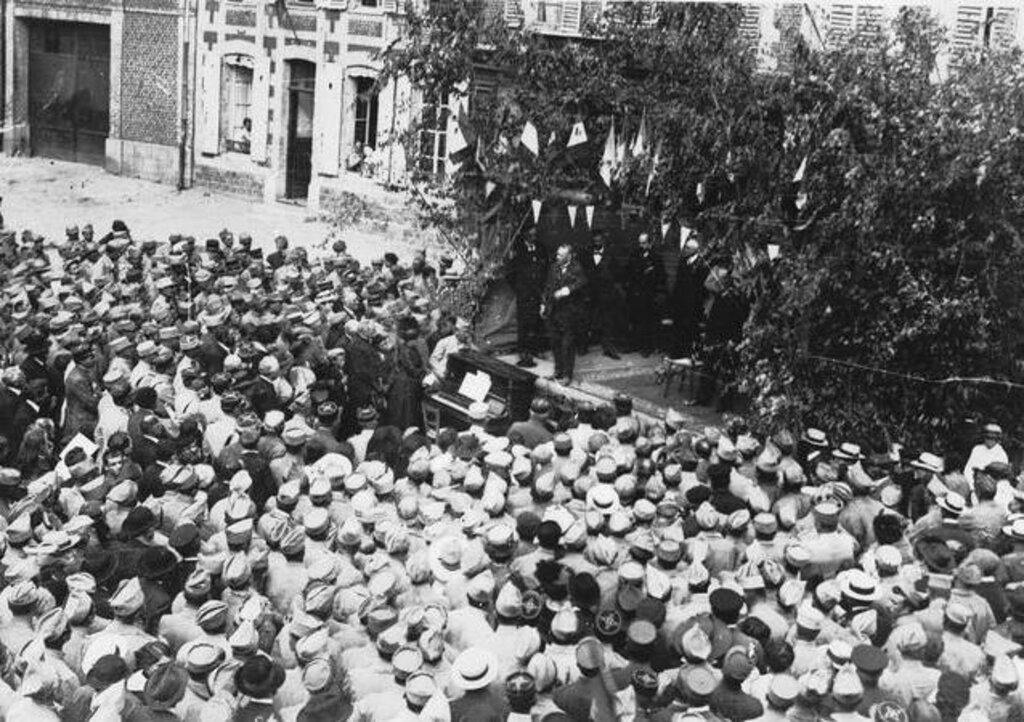Léon Bourgeois
Speed read
Léon Bourgeois was awarded the Nobel Peace Prize for his longstanding contribution to the cause of peace and justice and his prominent role in the establishment of the League of Nations.

Full name: Léon Victor Auguste Bourgeois
Born: 21 May 1851, Paris, France
Died: 29 September 1925, Épernay, France
Date awarded: 10 December 1920
An internationalist
Léon Bourgeois served as prefect of police in Paris and French prime minister before devoting himself to international peace efforts at the Hague Peace Conferences of 1899 and 1907. He optimistically maintained that reason and science would make the world a better place. Bourgeois believed that conflicts between states should be resolved through arbitration in a permanent international court of salaried judges. During WWI, Bourgeois proposed the creation of an association of states to safeguard world peace. His plan conferred greater supranational authority on the organisation than US President Woodrow Wilson’s model. Although Wilson’s philosophy dominated the 1919 League of Nations, Bourgeois did win approval for the founding of an international court at The Hague, Netherlands.
"And the (…) Peace Prize, awarded to Léon Bourgeois, was ushered in with a salute from Norway to the will for peace of the French people, whom he has represented with great distinction for many years through good days and bad."
Anders Johnsen Buen, Remarks at the award ceremony, 10 December 1920.
Bourgeois’s league of states
During WWI, Bourgeois presented his ideas on a new league of states. His proposal would make arbitration compulsory for states in conflict and create an international military force to be deployed as a last resort against states that violated international agreements. He also called for close inspections to monitor compliance with disarmament agreements. Bourgeois’s plan was not adopted, as most heads of state were not willing to relinquish so much power to a supranational authority.

"In the view of many historians, Bourgeois’s notions of international law and his concept of a League of Nations were at once more visionary and more realistic than those of his contemporaries."
Wilson Biographical Dictionary, page 130, The Nobel Prize Winners, New York 1988.
The Nobel Peace Prize to Bourgeois
The decision to award the 1920 peace prize to Bourgeois was a long time in the making. Although he had been nominated over the years by many former laureates, he was deemed worthy of the prize only after he became president of the League of Nations in 1920. The news of Bourgeois’s selection was not well received in his home country. Those on the right held him responsible for a weak French military defence prior to WWI, and those on the left feared the League of Nations would be used against socialists and communists.
"The rise of man from the animal to the human level was prolonged by the necessity of rising from a state of barbarism and violence to one of order and peace."
Léon Bourgeois, Communication to the Nobel Committee, December 1922.
Learn more
Léon Victor Auguste Bourgeois (May 21, 1851-September 29, 1925), the «spiritual father» of the League of Nations, was a man of prodigious capabilities and diversified interests ...
Disclaimer: Every effort has been made by the publisher to credit organisations and individuals with regard to the supply of photographs. Please notify the publishers regarding corrections.
Nobel Prizes and laureates
Six prizes were awarded for achievements that have conferred the greatest benefit to humankind. The 12 laureates' work and discoveries range from proteins' structures and machine learning to fighting for a world free of nuclear weapons.
See them all presented here.
